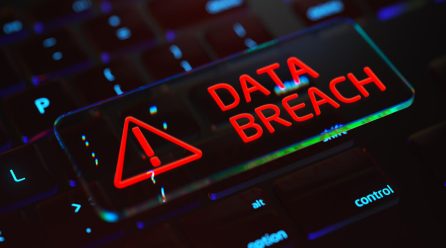Today most businesses understand the real value of risk management and how it can protect the business and uncover opportunities for growth & expansion. With firms looking to gain more from their risk management programs than ever before, the role of the risk professional has transformed significantly. No longer limited to assessing and mitigating risks, modern risk professionals are strategic partners, enabling organisations to unite and collaborate to manage uncertainty and make informed decisions. This evolution has broadened their responsibilities, requiring a mix of technical expertise, analytical skills, and interpersonal abilities. In this blog we explore the role of the modern risk professional and discuss their responsibilities and key skills.
Being an Effective Communicator
One of the most critical skills for today’s risk professionals is the ability to communicate effectively with multiple stakeholders across the business. It is only by interacting with other teams and departments that risk teams can understand what the key risks for each business unit are, what their impact is, and how they should be controlled.
A small risk team will need to establish risk champions across different areas of the business to broaden its scope. Risk professionals must engage with various stakeholders across the business, including executives, department heads, and operational staff to build a risk aware culture and collect the data and insights they need. Clear and concise communication ensures that risk management becomes ingrained in the organisational culture rather than being seen as a peripheral activity.
Embedding Processes
No risk team can run a risk management program without the support of the wider business. Risk teams need support from operational workers to take responsibility for specific risk areas, to complete risk assessments & control checks, and to be part of the escalation & remediation process. Establishing formal processes is a vital part of the role of the modern risk professional to ensure that risk is detected and managed efficiently.
Risk professionals should establish the following processes as part of their role:
Risk Register: Risk professionals are responsible for establishing and managing the organisations risk register. This involves logging risks, categorising & rating risk, and establishing Key Risk Indicators (KRIs) as well as assigning accountability and ownership for each risk area.
Risk Assessment Process: Establishing a formalised process to roll out risk assessments & capture the results is a vital part of any risk managers role.
Controls & Control Testing: Having controls and testing them regularly for their effectiveness is another vital risk management process that must be set up by the risk team.
Formalising Data Collection
Risk professionals need copious amounts of data from across the organisation. Engaging with stakeholders to explain why the data is needed and how it should be supplied is vital to ensure risk managers have visibility of what is happening on the ground.
Risk management thrives on accurate and relevant data – from KRIs and risk assessment results to the results of control checks and control testing – this data is vital to build an accurate picture of risk exposure. Therefore, a significant part of a risk professional’s role involves creating and maintaining robust processes for data collection. This includes designing workflows that ensure critical information is consistently captured, validated, and stored centrally so it can be reported on.
By formalising these processes, risk professionals reduce the likelihood of gaps or inconsistencies in data, which could lead to inaccurate risk reporting. Formalised processes also ensure that the data is structured and readily available for analysis, saving time and enabling quicker responses to potential threats. Modern technology often plays a pivotal role here, with advanced GRC platforms facilitating seamless data integration and management.
Establishing a Risk Appetite
Risk professionals are responsible for establishing the organisations’ risk appetite. They must work with stakeholders to establish the amount of risk the organisation is willing to accept for each risk area based on KRIs. They must then establish processes to monitor risk levels and escalation and remediation processes to ensure the business can remain comfortably within its risk appetite.
Analytics Skills
The ability to translate complex data into meaningful insights is an important trait for any risk professional. Risk teams often need to present their findings to diverse audiences, ranging from department heads and deputy managers to senior leadership. Being able to analyse risk data to prioritise the most critical risk areas, spot gaps & inefficiencies, and even detect opportunities is a key requirement for risk professionals.
Analysing complex, multi-faceted risk data and presenting it in relatable terms ensures that everyone understands the implications of risks and the rationale behind decisions. Risk managers must possess the skills to assess risks versus rewards through qualitative and/or quantitative analysis.
Networking to Access Valuable Insights
Modern risk management relies heavily on collaboration. Risk professionals must network across the organisation to access the data and insights needed to assess risks effectively. This means they must continually reassess risks according to changing conditions to ensure their risk register reflects their threat landscape. This involves engaging not only with leadership but also with teams at the operational level who are closest to the day-to-day risks. By maintaining open lines of communication with these stakeholders, risk professionals can gather real-time information that is critical to build an accurate picture of risk exposure.
Collaboration also extends beyond the organisation’s walls. Networking with external experts, peers in the industry, and regulatory bodies will support risk managers to implement best-practice processes that align with certain risk management frameworks and standards like COSO, Basel III, ISO 31000 and CPS 230. This external viewpoint ensures that risk strategies are not developed in isolation but are based on best practices and emerging trends.
Focusing on Analysis and Strategic Advice
Modern risk professionals are expected to go beyond simply crunching numbers, generating reports, and keeping the organisation out of the red. Their primary focus should be on analysing risk data and advising on the best course of action. Rather than spending excessive time manipulating raw data, modern risk professionals leverage advanced tools and analytics to identify patterns, trends, and emerging risks and spend their time deep diving into the results to proactively protect the organisation.
The ability to provide actionable insights is what sets apart exceptional risk professionals. They help decision-makers prioritise risks, align risk management with strategic objectives, and explore opportunities that might involve calculated risk-taking. This proactive approach shifts the perception of risk management from a compliance activity to a value-adding function.
Continuous Improvement
Risk professionals are not only responsible for establishing and implementing a risk management program, but they must take accountability for appraising the existing processes and addressing any weaknesses. This involves looking at incident data to understand where risks escalated into full blown incidents and understanding what can be done to avoid future occurrences. It also involves following best-practice risk management guidelines & standards like ISO 31000, COSO, and CPS 230 and ensuring the organisations’ processes are updated when these standards change.
Balancing Technology and Human Judgment
While solutions like GRC technology have significantly enhanced risk management, human judgment remains irreplaceable. Modern risk professionals must strike a balance between leveraging automated tools and applying their critical thinking skills. Technology can process vast amounts of data and provide predictive insights, but interpreting those insights in the context of the organisation’s unique environment requires a nuanced understanding of both business and risk.
Adapting to Change and Driving Innovation
New risks are constantly emerging from areas like digital transformation, regulatory changes, and geopolitical events. Risk professionals must stay ahead of these changes by continuously updating their knowledge and skills to ensure their risk register reflects these new risk areas. Risk professionals should not just be focused on identifying and mitigating only risks, but they must also identify opportunities for innovation & efficiencies that can give their organisations a competitive edge.
This forward-thinking mindset involves a willingness to challenge the status quo and advocate for new approaches to risk management. Whether it’s adopting cutting-edge technology or rethinking traditional risk frameworks, modern risk professionals play a crucial role in driving organisational resilience and meeting strategic goals.
The Role of Leadership and Influence
Ultimately, risk professionals are leaders within their organisations, even if they don’t hold formal leadership titles. Their ability to influence decision-making, shape strategy, and foster a culture of risk awareness positions them as key players in achieving organisational goals. By combining technical expertise with strategic vision and interpersonal skills, modern risk professionals ensure that their organisations are not only prepared for potential challenges but are also equipped to thrive in the face of adversity.
In conclusion, the role of the modern risk professional is multifaceted and dynamic. From effective communication and strategic networking to advanced data analysis and proactive process innovation, they are at the forefront of protecting their organisations to ensure they remain resilient. They are strategic advisors to the board informing them of the most critical risks so they can effectively prioritise budget & resources to protect the organisation.
To learn more about how risk management technology can support modern risk professionals in their evolving roles request a demo.





